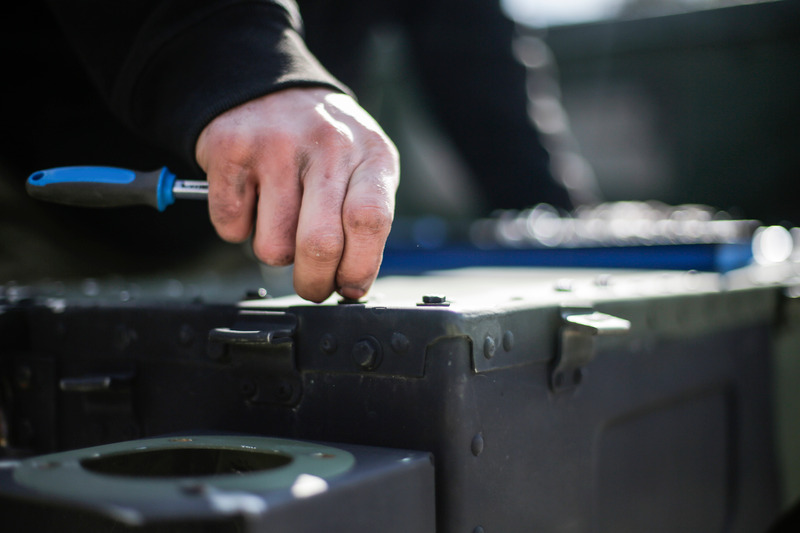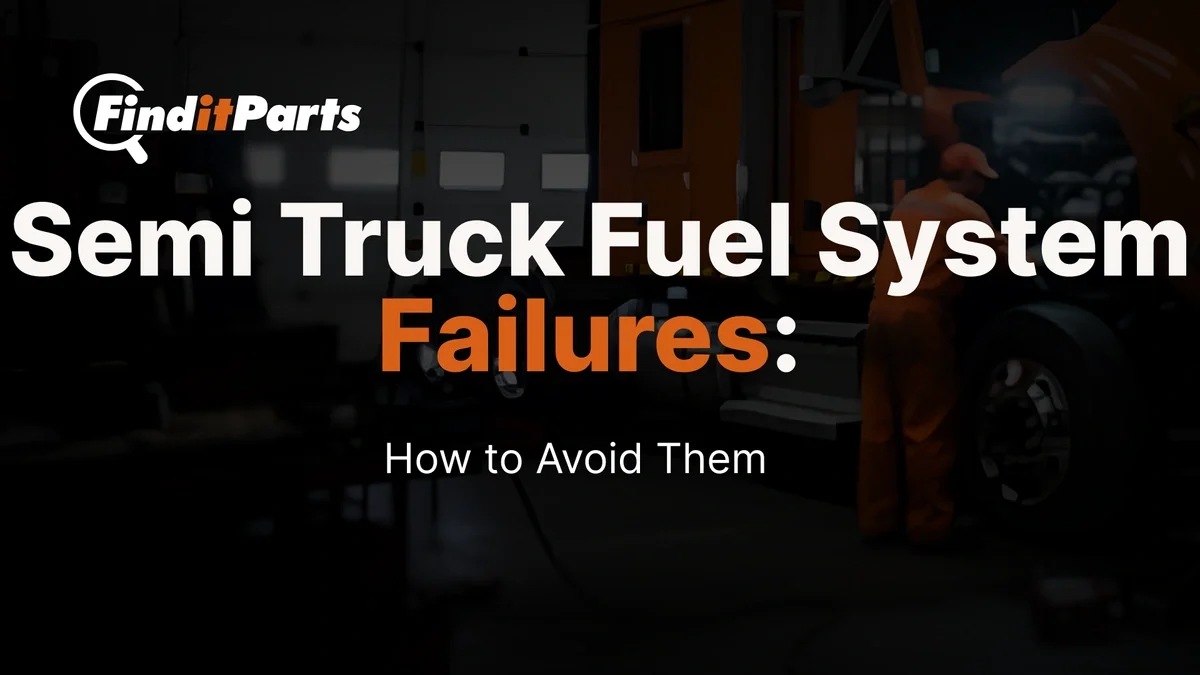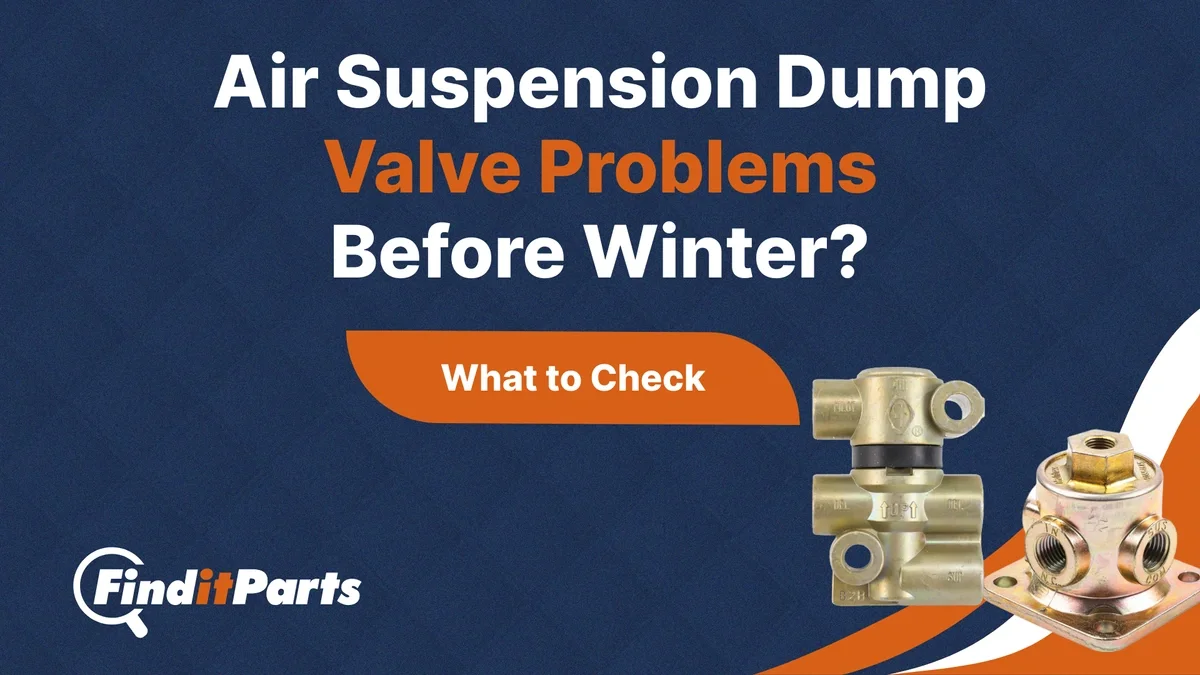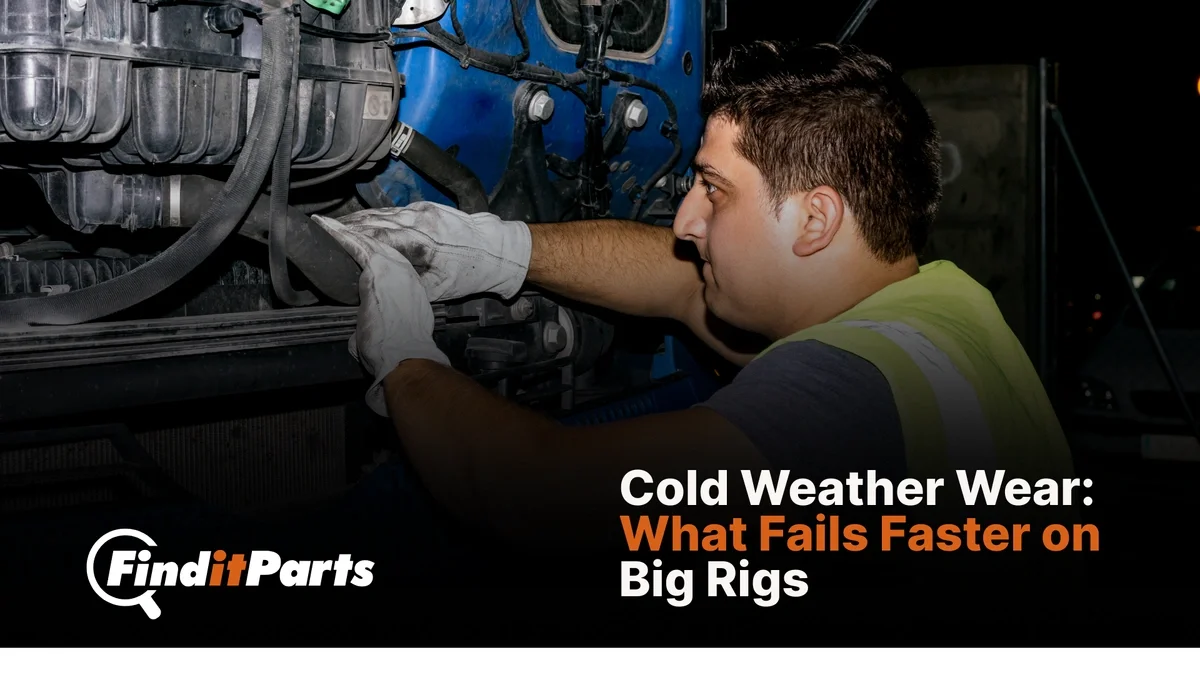Need help? We're here!
(888) 312-8812 Login Signup5 Most Common Truck Problems (And How To Avoid Them)
October 29, 2020

Image Source: Canva
At some point in their career, truck drivers have sat at the side of the road or a parking lot, wondering why their rig isn't running properly. But whatever the reason for the breakdown, the resulting expenses from towing, repairs, and downtime can add up pretty quickly. It can also be quite frustrating for the drivers, who have to adjust their schedules and deal with the stress from a broken-down truck.
Whether you're an independent trucker working on a contract basis or managing an entire fleet, you probably know too well that any truck will eventually encounter mechanical or electrical problems at some point. Thankfully, many of these problems are repairable or can be prevented—or at least mitigated—with the right maintenance procedure. Staying proactive with ways to keep your truck roadworthy is key to minimizing downtime and costly repairs.
In this guide, we list down the top causes of problems in trucks that need repair and how to prevent them.
Brakes
Arguably the most common repairs done on a truck are on the braking system. With larger payloads placing tremendous pressure on the brakes, the braking systems within modern trucks are more susceptible to fluid or air leaks. Corrosion and contamination from dirt or moisture can also cause various brake components to wear out faster or malfunction. If not addressed appropriately, these can eventually lead to complete brake failure.
One of the last things a driver wants to worry about while driving is a malfunctioning brake, so regular maintenance and inspection is crucial. Even while many of the brake parts are designed to wear out over time, proper care and driving practices can go a long way in making them last longer. For drivers who encounter issues, knowing how to troubleshoot common brake problems in heavy-duty trucks can prevent serious accidents and costly downtime.
Tires
More than half of roadside breakdowns are attributed to tire-related problems. In many of these cases, the tires are under-inflated, which causes the tire to flex and heat up. Once the tire gets excessively hot, the rubber starts to degrade and eventually rupture. A misaligned or worn suspension can also lead to uneven wear of the tire treads, leading to poor ride quality and a high risk of flats.
Aside from tire pressure and tread wear, tires are also susceptible to damage from the road itself. Hitting a pothole or an obstacle at 60 mph, for example, will cause the tire to take the full brunt of the impact. If the force is hard enough, the sidewall of the tire will compress against the wheel flange. This "pinch shock" effect can cause a crack to form inside the tire or even tear a chuck of the tire itself.
Like the brakes, the tires will eventually need replacing once the treads wear out. But you can get the most mileage out of each one by ensuring proper tire air pressure and adjusting it as needed, maintaining proper wheel alignment, and driving carefully to avoid potholes and other road hazards. Following best practices to prevent truck accidents also helps keep tires, brakes, and other critical parts performing safely on the road.
Engine
While modern semi-truck engines are highly efficient and built to last, this doesn't mean they are immune to breaking down. Overheating is a common issue in particular, which is due to various reasons ranging from a leak in the coolant line to a blown gasket. Oil oxidation is another common cause of diesel engine problems, especially if the truck remains stationary for a prolonged period. Worn or malfunctioning fuel injectors, pumps, fuel, and the EGR valve are other common engine failure sources.
The more mileage your truck has, the more critical it is for the engine to be maintained. It’s also crucial to work with a maintenance professional in reviewing potential sources of overheating and malfunctions to prevent breakdowns in the long term. Understanding how to avoid costly truck repairs can go a long way in keeping your engine running efficiently.
Starter
Starter problems are usually associated with colder winter months, but this is actually a frequent occurrence all year round. In many cases, the problem can be traced to a loose or corroded battery connection or a defective battery and can be fixed by replacing the affected component. But in some instances, the problem is with the starter parts, such as worn brushes, faulty armatures, or coil windings causing excessive current draw, or magnets rubbing against other parts and generating increased internal friction. This can lead to the starter cranking the engine slowly, noisily, or not at all. A starter that's on the verge of failure may also engage for a brief period but then slip.
The starter mechanism should always be reviewed, no matter the weather, to prevent serious ignition problems in the future. Clear signs of starter failure are almost always detected by the operator, particularly when starting the engine after a long inactivity period. If you prefer doing light repairs yourself, learning about truck repairs can help you troubleshoot small issues before they escalate.
Wheel Bearings
Wheel bearings are designed to help the wheels move with as little friction as possible, but this comes at the cost of being exposed to the same forces. This will eventually cause the bearings to break down, which is often signaled by a roaring sound from the wheel well. Sudden jerking movements or excessive wheel play are also likely indicators of brake failure.
Once a wheel bearing starts to fail, it will prevent the wheel from turning freely and put additional stress on the hub, CV joint, axle, and various components of the drivetrain. If there’s substantial damage to the bearing, the wheel may seize up entirely. This is why early detection and replacement of worn or damaged wheel bearings are essential to prevent catastrophic accidents on the road.
Overall, the best way to prevent truck problems, or at least prevent them from getting worse, is by thorough and regular maintenance. Performing truck inspections before and after each trip as well as regular tune-ups from a professional, should be best practices to follow. And when the truck does require new components, use only high-quality replacement parts to ensure durability and reliable performance. With FindItParts, you can find a genuine replacement and high-grade aftermarket components for trucks, tractors, buses, and utility vehicles of exceptional quality at an accessible price.



